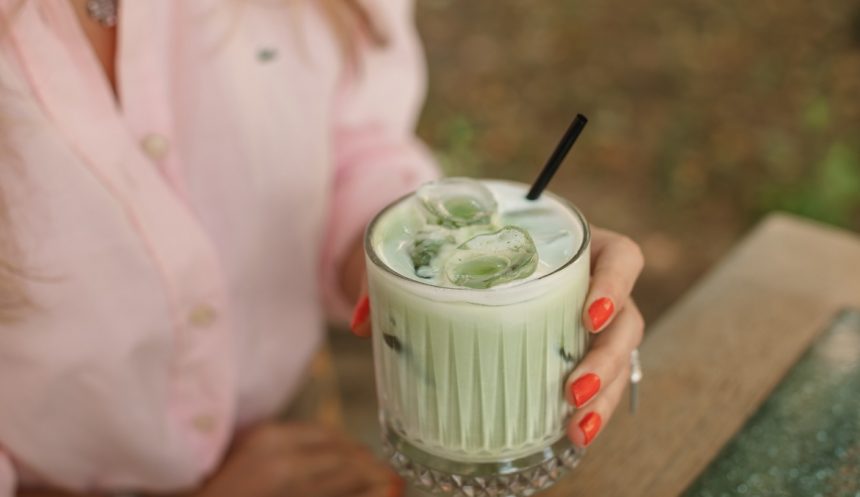These questions are answered below by Brooklyn-based dietitian Maddie Pasquariello, MS, RDN, from East Coast Health.
How much caffeine does matcha contain?
“Generally, a gram of matcha powder, which is about half a teaspoon, contains around 30 milligrams of caffeine,” explains Pasquariello. Some brands may have up to 40 to 45 milligrams of caffeine per gram. Most brands recommend using one teaspoon of matcha powder per cup, totaling around 60 to 70 milligrams of caffeine or more depending on the brand. The FDA advises adults to consume up to 400 milligrams of caffeine per day.
Pasquariello mentions that the caffeine content in matcha can vary due to factors like brewing method, type of powder, and serving size. Some brands process their powder for higher caffeine content. The caffeine in matcha is also influenced by factors like harvest time, weather conditions, and leaf age, with younger leaves having higher caffeine levels. Despite an average of 30 milligrams of caffeine per gram, there can be variability between brands. Reading labels and seeking insights from baristas can help if you’re concerned about caffeine intake.
For those who tolerate caffeine well, a midday matcha cup can enhance attention and work performance under stress, as found in a 2021 study.
Caffeine in matcha vs. green tea
Matcha generally contains more caffeine than green tea. Green tea has about 29 milligrams of caffeine per cup, while matcha can range from 60 to 70 milligrams per cup. This difference is attributed to how the tea is prepared, with matcha being more concentrated than traditional green tea.
Matcha offers the full leaf and its benefits in powdered form, providing peak caffeine and antioxidant potential.
Is matcha’s caffeine content higher than coffee?
No, matcha has less caffeine than coffee. A standard cup of drip coffee usually contains around 100 milligrams of caffeine. Decaf coffee, depending on the variety, has zero to six milligrams per cup, placing matcha’s caffeine content between the two.
Pasquariello suggests that matcha could be a good option for those who need a moderate caffeine boost without the intensity of coffee. The slow-release nature of matcha’s caffeine, coupled with the calming properties of L-theanine, can help prevent jitters and anxiety commonly associated with coffee consumption.
The takeaway
Aside from its beauty and cultural significance, matcha is a notable caffeine source. It’s essential to monitor your matcha consumption, especially if you’re trying to limit caffeine. Listening to your body and avoiding excessive caffeine intake can prevent unwanted symptoms like sleep disturbances and digestive issues.
Well+Good articles reference scientific, reliable, recent, robust studies to back up the information we share. You can trust us along your wellness journey.
- Kochman, Joanna et al. “Health Benefits and Chemical Composition of Matcha Green Tea: A Review.” Molecules (Basel, Switzerland) vol. 26,1 85. 27 Dec. 2020, doi:10.3390/molecules26010085
- Baba, Yoshitake et al. “Effects of Daily Matcha and Caffeine Intake on Mild Acute Psychological Stress-Related Cognitive Function in Middle-Aged and Older Adults: A Randomized Placebo-Controlled Study.” Nutrients vol. 13,5 1700. 17 May. 2021, doi:10.3390/nu13051700
- Unno, Keiko et al. “Stress-Reducing Function of Matcha Green Tea in Animal Experiments and Clinical Trials.” Nutrients vol. 10,10 1468. 10 Oct. 2018, doi:10.3390/nu10101468






